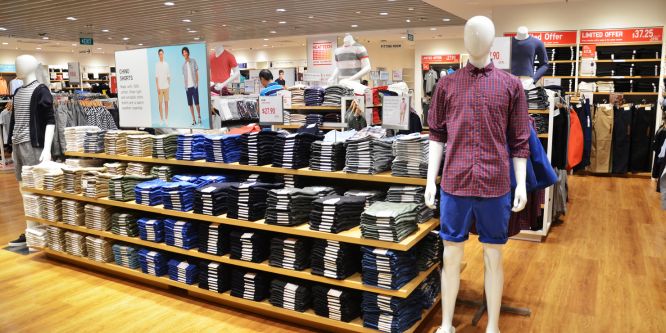
Photo: iStock | tang90246
Japanese fast-fashion retailer Uniqlo wants to become a more familiar fixture throughout the U.S.
Uniqlo’s parent company Fast Retailing is expanding its North American store count by 10 percent as part of a plan to reach 200 stores on the continent by 2027, Reuters reported. The chain intends to open 20 to 30 new stores per year in the service of that goal. Its expansion plans for this summer include opening six U.S. locations in California, Maryland and New Jersey, where Uniqlo has already established a footprint and two locations in entirely new markets in Canada. Uniqlo’s current U.S. store count is 47 stores and its current Canadian store count is 16.
Moving forward with plans for more Uniqlo stores in the U.S. and Canada is not the only recent move that Fast Retailing has made to increase its North American presence.
The company last year announced the opening of a GU store in New York’s Soho neighborhood. GU is Fast Retailing’s more trend-focused, youth-targeted brand. It represents GU’s first appearance outside of Asia. It is one of Fast Retailing’s few attempts to launch it outside of Japan (a handful of GU stores opened in South Korea and were closed during the novel coronavirus pandemic).
Reuters reported late last year that Uniqlo emerged as a standout among apparel retailers in an otherwise suffering vertical during the pandemic. Fast Retailing said then that Uniqlo was on its way to showing a profit in the U.S. for the first time in its 17 years of doing business in the country. It attributed the results to a logistics revamp and a new pricing strategy that ended discounting.
Uniqlo is not the only international fast-fashion brand whose slow, deliberate stateside expansion is picking up speed.
This year Irish fast-fashion retailer Primark has continued with plans to open more stores in the U.S., some in entirely new markets, aiming for a store count of 60 by 2027, Business Insider reported. Primark currently has 17 stores in the U.S., and the next phase of its expansion will consist of establishing “a significant presence” in southern states.


Leave a Reply
You must be logged in to post a comment.